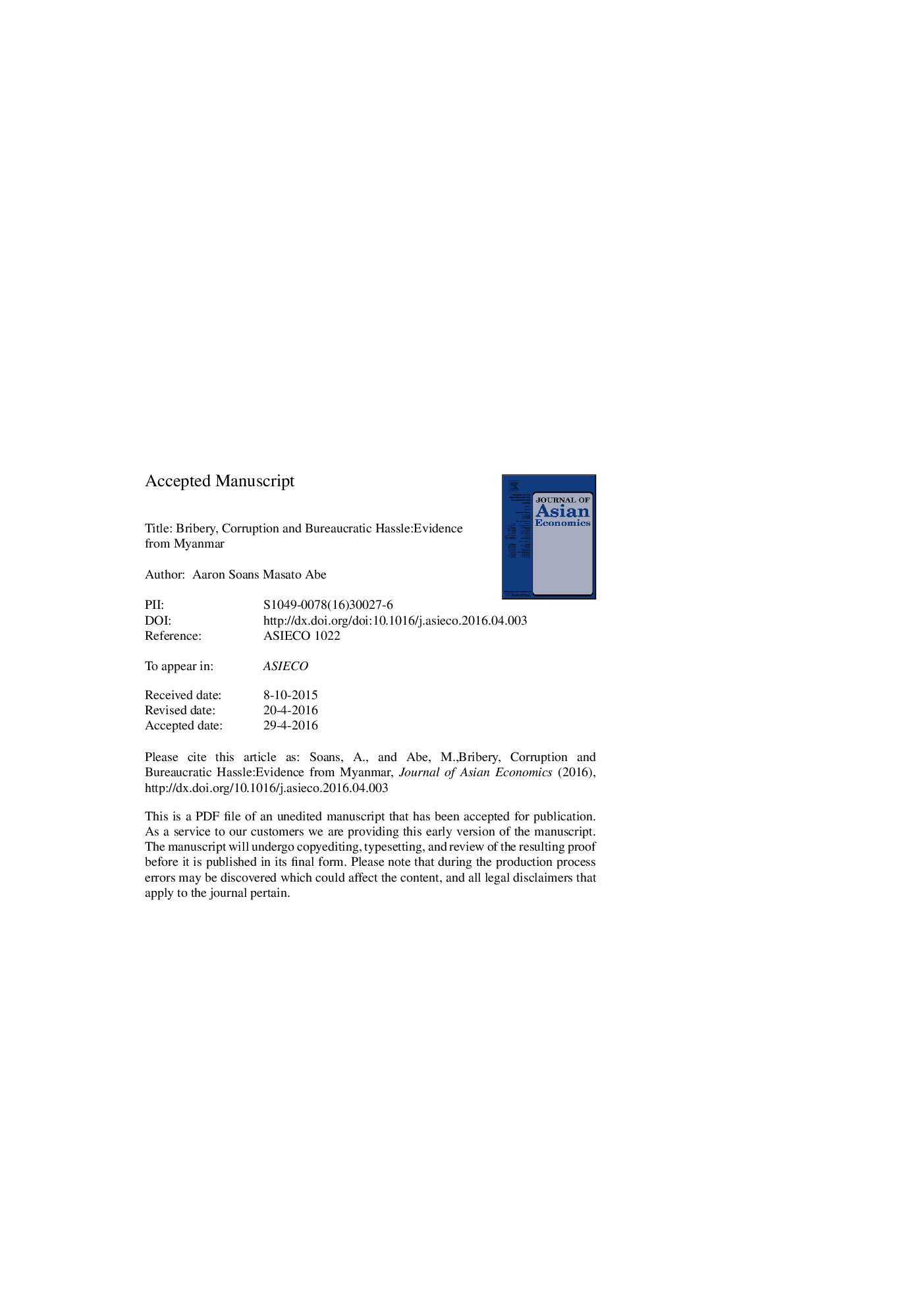| Article ID | Journal | Published Year | Pages | File Type |
|---|---|---|---|---|
| 5087210 | Journal of Asian Economics | 2016 | 36 Pages |
Abstract
Corruption has been found to be the most severe obstacle to business operations, according to a recent survey of over 3000 firms in Myanmar. This paper sets out to understand the structure of corruption through an econometric analysis of this survey. It finds that firms with higher 'ability to pay' (proxied by sales revenue and employee growth) are more likely to pay bribes. While firms with lower 'refusal power' (i.e. those dependent on bureaucratic permissions to export and import) are more likely to find corruption to be an obstacle. A distinct but related question is whether bribes act as 'efficiency grease' by allowing firms to circumvent red tape. No evidence is found to support this hypothesis; in fact, firms that pay bribes report greater bureaucratic hassle compared to firms that do not. This result fits in more closely with the view that red tape could be used to extract bribes from firms.
Related Topics
Social Sciences and Humanities
Economics, Econometrics and Finance
Economics and Econometrics
Authors
Aaron Soans, Masato Abe,
